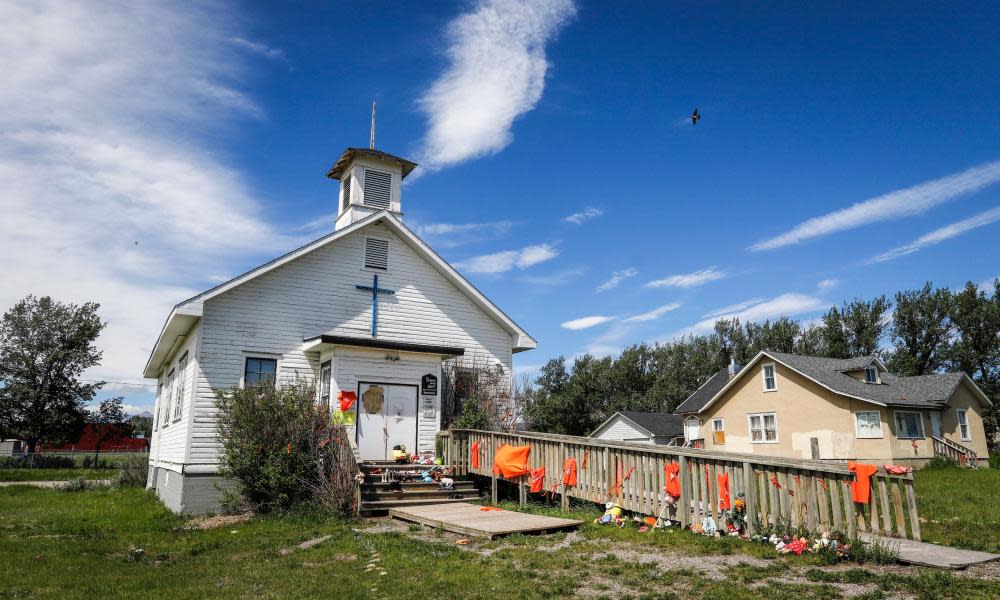Racist school course sparks outrage as Canada reckons with colonial legacy

A series of racist questions in a high school English course sparked outrage among parents and students and highlighted persistent shortcomings in how Canada teaches the grim legacy of colonialism and its impact on Indigenous peoples.
Students taking a grade 10 correspondence course in the province of Nova Scotia were asked to list the benefits and disadvantages of being placed in one of the country’s notorious residential schools, where 150,000 Indigenous children were sent as part of a campaign of forced assimilation.
Controversy over the course comes as Canada reckons with the discovery of 215 unmarked graves at a residential school in the city of Kamloops, British Columbia.
“Coming off the heels of all the news about the children being unearthed was such a stark moment to be looking at this,” shalan joudry told CBC News. Her daughter, Malaika Joudry-Martel, was enrolled in the course.
The pair, residents of Bear River First Nation, said they cried when they saw the questions, which included: “Why are poverty and alcoholism common problems among First Nations populations?” and “Why is unemployment high among First Nations?”
Related: ‘He was just a child’: dead of Indigenous residential schools haunt Canada
Canada’s Truth and Reconciliation Commission has identified nearly 4,100 children who died at residential schools, but recent estimates suggest the true count is far higher. In its 2015 report, the commission concluded that children were abused, physically, emotionally and sexually and died in disproportionate numbers.
After joudry posted about the course on social media, the province’s education minister apologised and said that the material would be swiftly removed. Those enrolled in the course received a message that the material was “unacceptable” and apologised for the “insensitive” content.
In the same week, however, an advisor who helped shape a controversial social studies curriculum in the western province of Alberta has come under fire for an article in which he argued that Indigenous peoples should not be “entitled to some unique aristocratic victim status in this country”.
“Almost the entire media and social media class in Canada, however, seized on Kamloops as evidence of ‘Canada’s Holocaust,’ as if the children had been deliberately killed, or that death was the norm rather than the very sad exception,” Chris Champion wrote in the Dorchester Review, a history publication he edits.
“It’s puzzling everyone insists [Indian residential schools] were “genocidal” yet almost all photographs show children apparently happy & healthy, or at least puzzled as kids in such photos often are. Are the photos lying? Is some of the testimony dubious? Or were toughest times limited to a certain era?” the journal also tweeted.
Since the discovery of the Kamloops graves, several provinces have announced funding for investigations of other possible burial sites. The federal government has also announced $C27m in funding.

